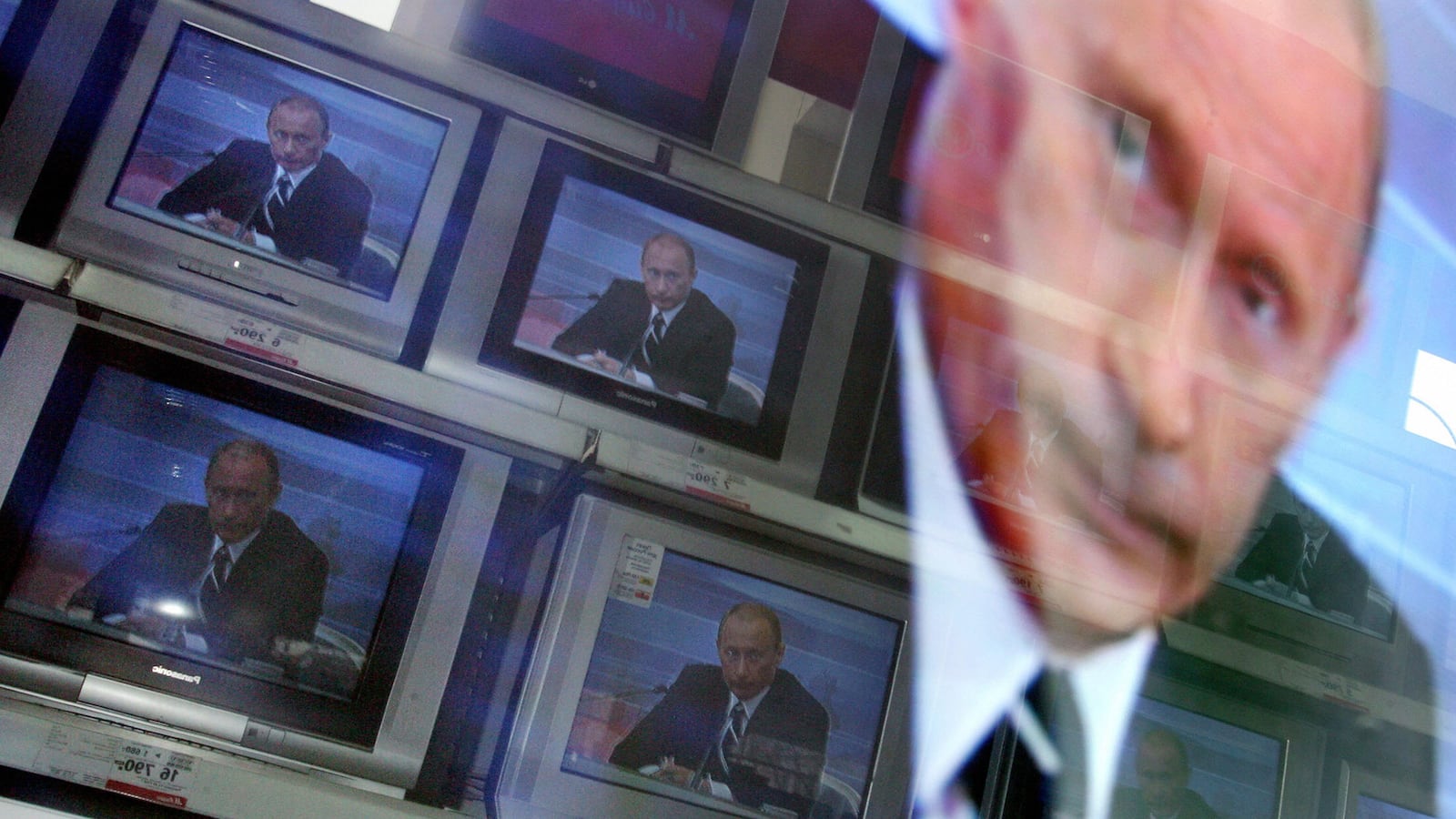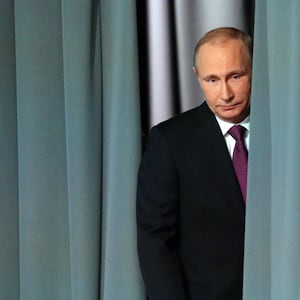It’s been a good spring for Russian President Vladimir Putin. First, the White House announced that they were waiving sanctions on the company behind Russia’s Nord Stream II gas pipeline to Germany, and then days later it was announced that U.S. President Joe Biden and Putin would meet for a day-long summit in Geneva on June 16. These overtures towards Moscow stand in stark contrast to the most recent round of sanctions against Russia that the Biden administration imposed just a few weeks ago. This appears to be a carrot and stick approach. But it will take more than one round of sanctions to recalibrate our relationship with Moscow.
Everywhere we turn today we find examples of Russia’s aggressive intelligence operations directed against the U.S. and its allies. The Russian intelligence assault against the West has not only been “sweeping and systematic” but also brazen and unrelenting with the goal of weakening our political system.
Russian interference in the 2016, 2018, and 2020 U.S. elections has been well documented. But what’s less appreciated is that since 2016, Russia’s actions have continued largely unconstrained, whether it be its attempts at two very high-profile assassinations of Sergei Skripal and Alexei Navalny using Novichok or continuing to conduct election interference and disinformation campaigns across nearly the whole of Europe. Only recently have we learned of the disruption of a Bulgarian Spy Ring of Russian agents, a Russian espionage scandal in Italy, and the designation of Russian culpability in the sabotage of a weapons facility in the Czech Republic in 2014.
Likewise, the Russians recently targeted several of our agencies that make up our critical national infrastructure with a wide-sweeping cyberespionage operation in the SolarWinds hack. Most recently, Russia reportedly has conducted cyberespionage targeting vaccine development in Canada, the U.K., and the U.S., and spreading disinformation about Pfizer and other Western-developed vaccines. These actions add to the mounting body of evidence that Russia is engaged in a full-on intelligence assault of the West.
Within this maelstrom, it may be hard to appreciate just how much of a seismic change this interference in our internal political process has been in the context of the longstanding “Moscow Rules.” These rules are a set of unwritten norms meant to limit operational activity that could lead to a serious confrontation. Since the height of the Cold War, Russian and American intelligence services have refrained from assassinations, terrorism, or strong-arm tactics directed against each other’s officers as well as from engaging in counterfeiting operations. And, most importantly today, direct interference in each other’s internal political processes. This understanding held firm with a few minor exceptions from the post-Stalin era up to the 2016 election. The significance and high risk of this departure in political action has been largely underplayed, especially in the age of cyberwarfare.
These most recent sanctions were appropriate because they clearly laid a broad list of grievances at Russia’s feet and have some sharp edges like circumscribing Russia’s sovereign debt capacity and calling out key perpetrators of Russia’s active measures. However, it would be overly hopeful to think that these sanctions will be sufficient and moving immediately toward engagement might be underestimating our adversary, Russia’s Spymaster President Vladimir Putin. Trained by the KGB, former head of the FSB, and now commander in chief of the GRU and SVR with no meaningful check on his power domestically, Putin’s instincts are those of a Cold War spymaster who is entrenched in his adversarial position against Western democratic ideals and the West generally.
It would be naïve to believe that Putin will now cease in his engagement of disinformation and active measures against the West. Rather, Putin will not back off and will test Biden’s resolve to remain strong against Russia. But he won’t shy away from the opportunity to appear on equal footing with a new American president in front of the world! Putin is a hardline realist with a deep appreciation of power dynamics.
Seen through an intelligence prism, now is the time to engage in “unseen” efforts to compel Moscow back to a contained and constrained level of behavior—most likely in the cyber arena but also through intense and consistent sub rosa negotiations on a new set of “Moscow Rules.” Coordinated and high-level discussions between national security counterparts could help draw “out of bounds” lines and perhaps most importantly project a credible countermeasure stance to what would happen should Russia seek to conduct another cyber-attack or election interference campaign. Sanctions and summits are just a start. The “unseen” is what will determine if we are ultimately successful.
Jack Devine is the former Acting CIA Director of Operations and is currently the president of The Arkin Group, a New York City based international intelligence and investigative company. His is the author of the recently released book Spymasters’ Prism.







